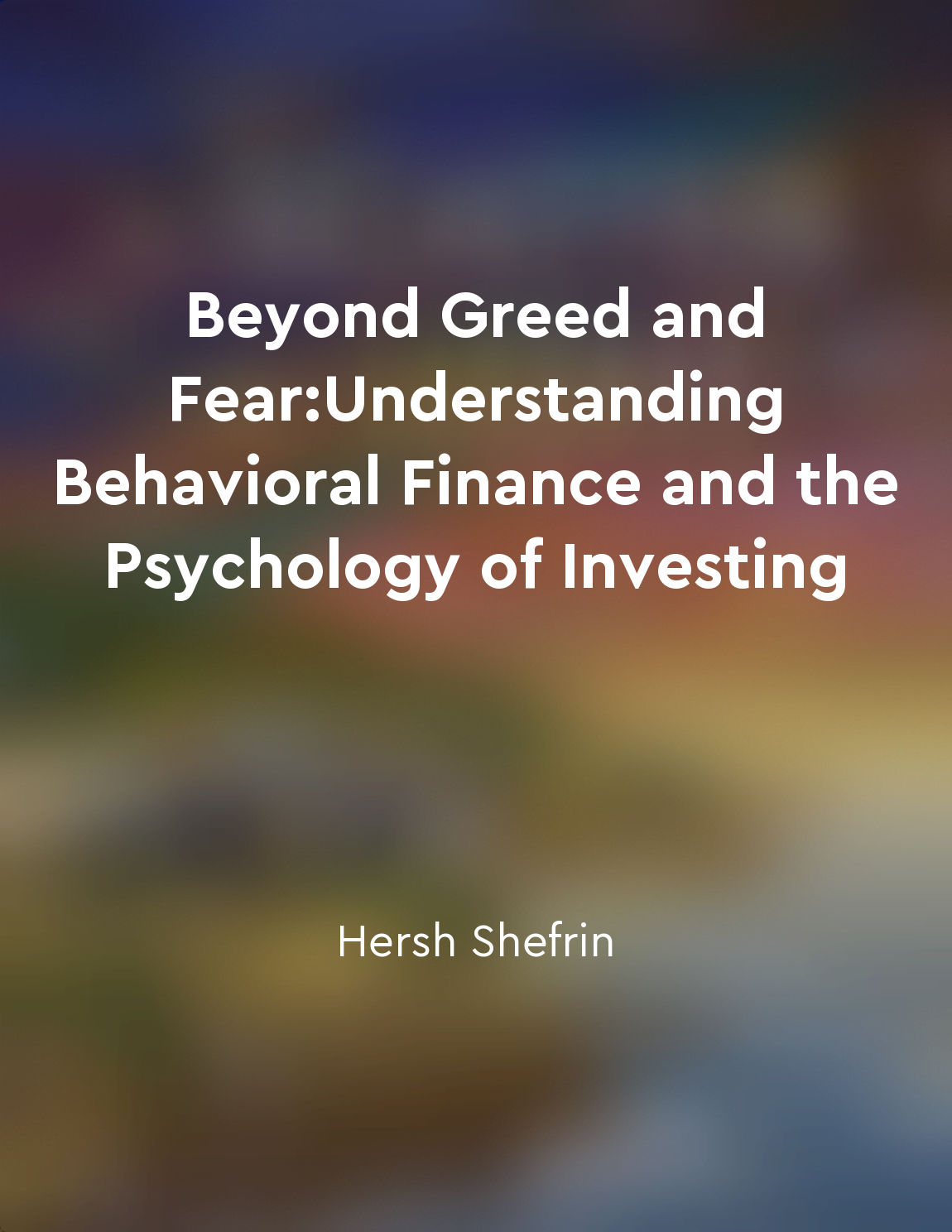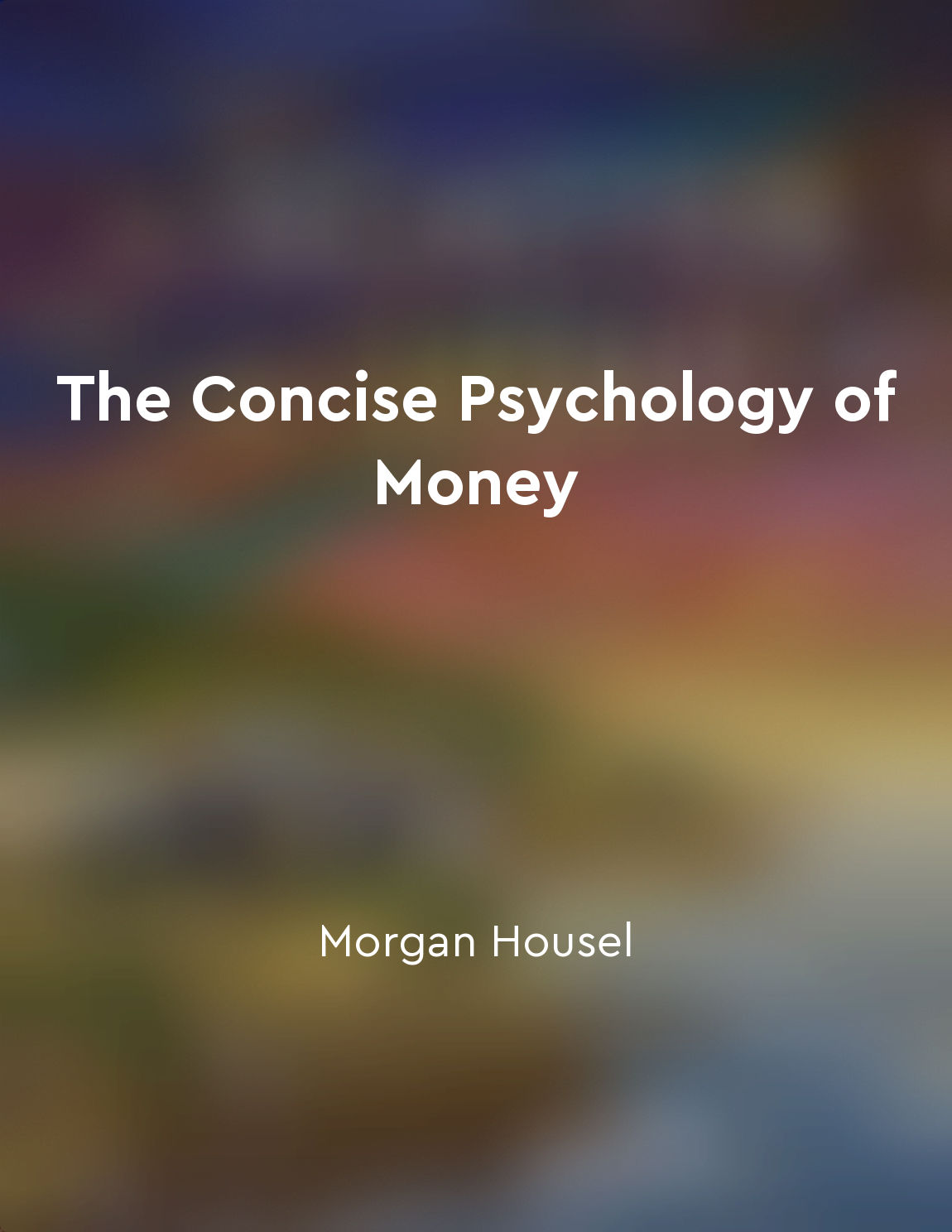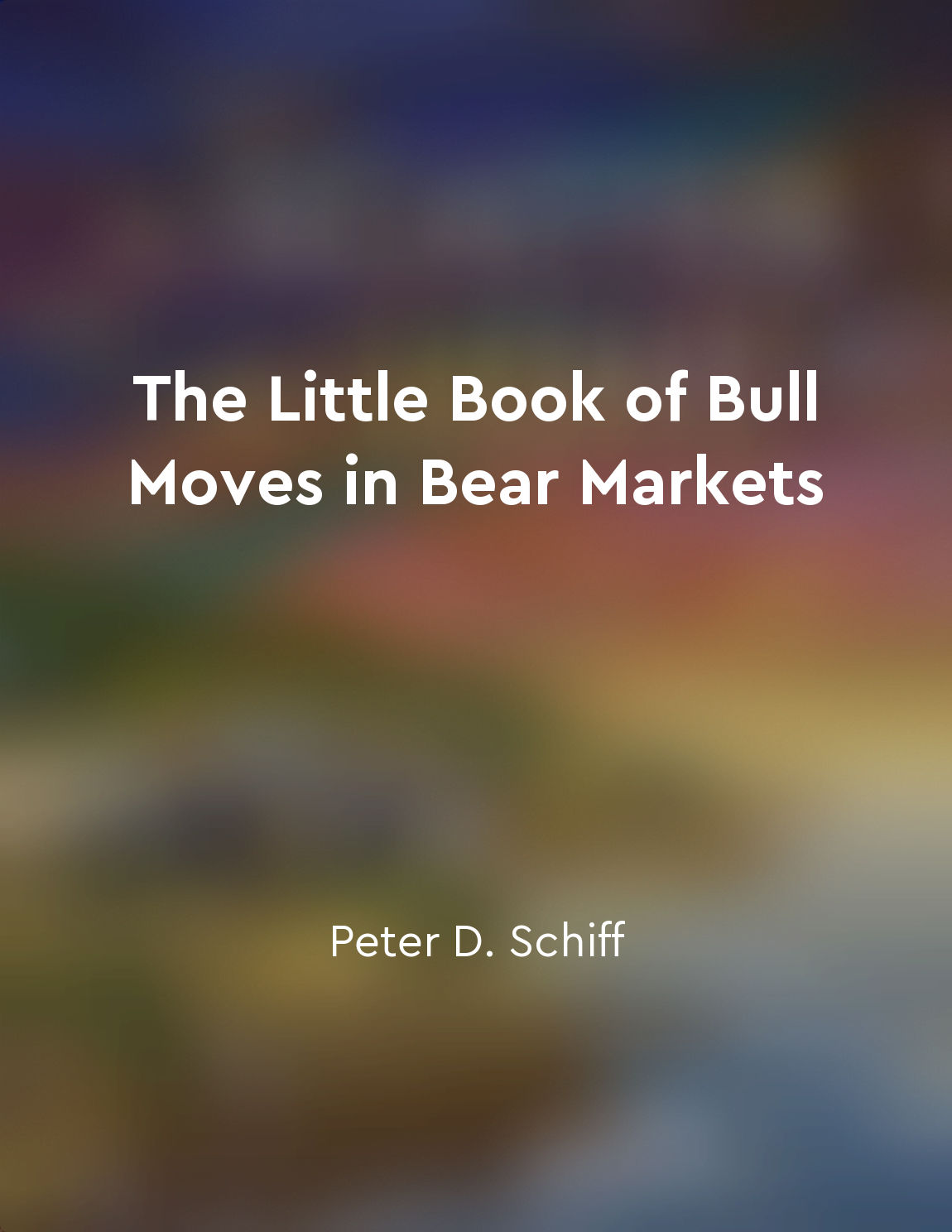The financial industry profits from the herd mentality of investors from "summary" of A Short History of Financial Euphoria by John Kenneth Galbraith
The financial industry is famously adept at profiting from the herd mentality of investors. When a particular investment becomes fashionable, everyone wants to get in on the action. This creates a surge in demand, driving up prices and creating a self-reinforcing cycle of enthusiasm. As prices rise, investors become even more convinced of the investment's potential for profit. They are reassured by the fact that so many others are making the same decision. This creates a sense of safety in numbers, a feeling that there must be something to the investment if so many people are jumping on board. The financial industry understands this dynamic very well. They know that investors are more likely to follow the crowd than to think independently. They exploit this tendency by creating a sense of urgency around cert...Similar Posts

Belief perseverance can prevent investors from accepting new information
When investors have a belief about a particular investment, they tend to persevere with that belief even when faced with new in...
Recognizing the difference between needs and wants
Understanding the difference between needs and wants is crucial in managing our finances wisely. Needs are essential for surviv...
Derivatives can be used to hedge against risk
Derivatives can play a crucial role in managing risk. Companies face various risks in their day-to-day operations, ranging from...

Money can be a source of stress or freedom depending on how we manage it
Money is a peculiar thing. It’s a tool that can provide us with security, comfort, and opportunities, but it can also be a sour...

Climate change is a global challenge that requires international cooperation
Climate change is a pressing issue that transcends national boundaries. It is a problem that affects every country on the plane...
Corporate governance structures can impact a company's performance
Corporate governance structures play a crucial role in shaping a company's performance. These structures encompass the rules, p...
Risk perception fluctuates over time
The perception of risk is a complex and dynamic phenomenon that is constantly evolving. It is not a static concept that remains...

The Federal Reserve plays a key role in shaping the economy
The Federal Reserve is a powerful entity that wields significant influence over the economy. As the central bank of the United ...
Emotions can cloud judgement
When we are in the grips of our emotions, it is easy for us to lose sight of the bigger picture. Our judgment becomes clouded, ...
Speculative manias create wealth disparities and social unrest
The phenomenon of speculative manias has a profound impact on the distribution of wealth within a society, often leading to sig...
